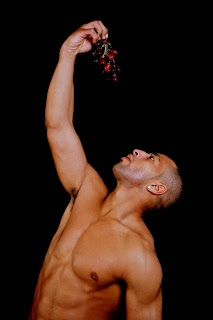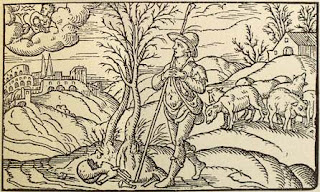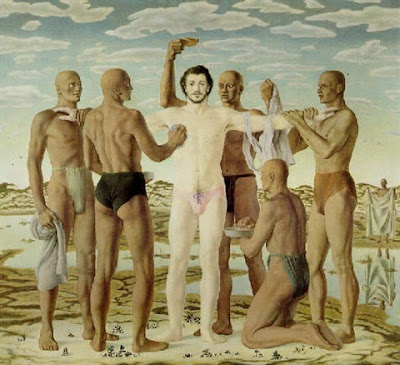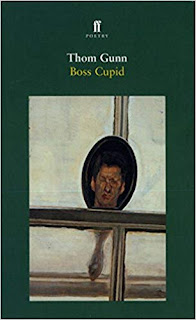Marechera and homosexuality.
The Oedipus myth provided Freud with a key psychological theory, a theory that gained mythological status within the twentieth century. The two most disliked strands were, of course, Freud’s belief that the Oedipal Complex created a woman’s sense of incompleteness—she had no penis—and the homosexual’s sense of incoherence—he was a male who lacked full mental complexity. Inferiority and rejection are components of the Oedipal Complex.
Writing on Marechera, David Patison sees The House of Hunger in terms of the Oedipal conflict: the “relative coherency” ( Perspectives, p.195) of the novel comes about because Marechera—at this point—is accepting elements of his academic upbringing. In other words, because Marechera still clings to the Oedipal struggle against his Father-world (Oxford University) he is able to shape a work of fiction of some maturity, one that is recognisable as a novel, one that deserves academic recognition because it is recognisable! (Unlike Black Sunlight and The Black Insider—both of which disintegrate, like Marechera’s mind, because they have avoided maturity and struggle). There are at least two main flaws in this claim. Firstly, Patison assumes a definition of the Oedipal Complex that pre-dates Freud’s later revisionism. Secondly, it credits The House of Hunger with a sort of completeness that not even this establishment novel actually possesses.
Towards the centre of The House of Hunger, a fascinating and finely crafted passage occurs. The narrator returns to his Oedipal years: for one week, at the age of four, he slept in the bed of his mother (while his father was absent). This is followed by a homoerotic passage in which the narrator witnesses his brother’s coming of age (a pun intended by Marechera!) With deliberate irony, the reader (through the eyes of the narrator) is shown a moment of homosexual desire, an infantile moment before child is subjected to adult, the normal way of things. A childish innocence characterises the passage, yet the section is written with total coherence. The child, for Marechera, is given authenticity—the homosexual is credited with wholeness. Already, in The House of Hunger, there is a sense that life (for Marechera) isn’t about Oedipal rejection, but about rejecting the Oedipal myth:
My street education was no less explicit. The advent of pubic hairs and unmanly breasts (you were supposed to squeeze them, or pick up an angry ant and let it bite the nipple) was brought to my gang quite graphically by Peter. He was the first to have pubic hairs worth exposing. He was the first to induce Nestar to take down her knickers and bend over. And one thick summer night the boys came from all over the township and gathered round to watch a demonstration that Peter had promised. He was going to prove to us infants that he had actually become capable of making girls—any girls—pregnant. It was a solemn occasion. We were going to see the thing that divided the men from the boys. Peter stripped. He had bathed and oiled himself all over. He was lean and strong and handsome. The size of his organ astonished us. It was stiff and huge and its mouth was tense. He quite casually cradled it in his right-hand fingers and began to masturbate. We watched him with mounting eagerness. Above us white termites flashed and spurted about the naked light bulb of the solitary street-light. I began to sweat. He groaned, and—moved. He was losing control. We could see a great happening taking over is soul. It was in his spine, arching him backward, and yet lifting him gradually. It was if he stood between two magnets, and the iron filings of his nerves were being tortured into a pattern. The taut cloth of his being, unable to bear the strain, tore. And moaning, like something out of this world, he came and came and came like new wine that cannot be contained within old cloth. The gang drew closer and closer and sighed. I swallowed thickly, but my mouth was dry. And my mouth, it seems, has been dry ever since.
(House of Hunger, pp. 53-54).
In one sense this is a gay “sex story”. Erotic rather than pornographic, however, for it assumes (as Barthes wrote of the erotic photographic image) a desire for more than a unified focus: a single (penis-like) eye on the pre-determined sexual act. And the passage has some deep points of focus. There is “advent” for a start, a word that suggests the quasi-religious content of what follows: a holy birth and “solemn occasion”. There is also the attribution of “thick” to night, making the natural surroundings take on the quality of flesh…the wonder of Peter’s “organ”. Marechera plays with pornographic phraseology. Essentially, this act is political, a “demonstration”, also a performance, and Peter’s oiled skin links him to sex-performer, boxer, and prepared warrior. The narrative is concerned with fertility: sex=pregnancy, the reproductive white winged termites foreshadow the spurt of Peter’s semen. But it also carries a different tone. The “naked” light bulb (phallic) is “solitary”. Fertility’s connection to outward, structural order (as in the termite world) is gradually replaced by self-absorption and the inwardness of the masturbatory act. Peter is pulled down and lifted up by sex. It brings a “pattern”, an imposition into which his body is “tortured”. At the close of the passage, the sentences carry a simple, paratactic structure…and…and…and…and…as if the structure of the experience is barely hanging together. And finally, the narrator (and reader) is left to experience a dry sexual act. “I swallowed thickly” reflects a sexual act not made, but felt. The narrator has drunk from Jacob’s well of life, but it has not refreshed him, and the spiritual emptiness is what remains. Quoting irreligiously from the Gospels, new wine in old cloth, Marechera links Peter’s act to the need for a new political order with new ideas. The homosocial world of the gang has revealed a homosexual core and this has opened up a structure of sensation that challenges accepted social structuring.
Around the black male image, Marechera connects rival expectations, and these focus on a question about nakedness/coherence, one in which an anti-social model (gang, homosocial, homosexual) is located as a source of power. Peter's cradling of his grown-up penis intimates a psychological moment where child and adult are in touch (Dionysus holds Zagreus). Like the later Freud, the Oedipal strain, for Marechera, is not seen as a rejection; rather, a rejection of it brings a more complex maturity that allows adult and child and variant sexualities to co-exist as a new wine.




Comments